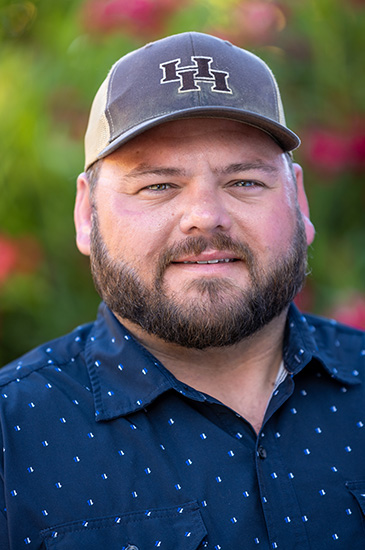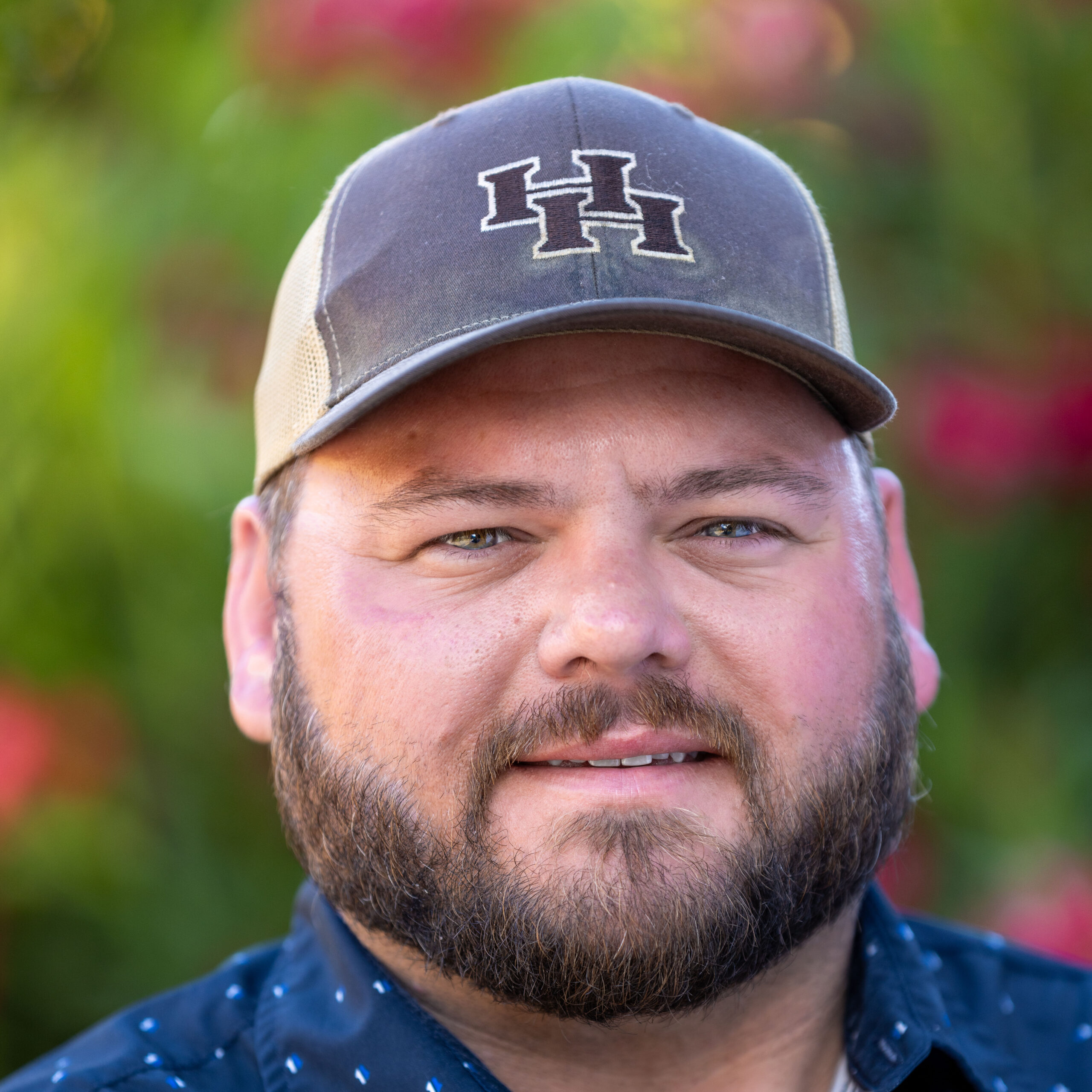Cripple Mill Ranch
Marfa, TXCripple Mill Ranch is a sprawling 9,967± acre ranch near historic Marfa, Texas. Mesas overlooking the Alamito Creek Valley and numerous canyons, caves, springs, and habitat types make a rare combination.
The Harris Peak Ranch is one of the largest contiguous acreages bordering the Brazos River Authority (BRA)-controlled shoreline on Possum Kingdom Lake. Located on the lake's northwest side and at the end of a county road easement, the property backs up to large acreage ranches. Along the southern boundary, the property borders the Brazos River Authority-controlled shoreline, with over two-and-a-half miles of waterfront on Possum Kingdom Lake. Obtaining a property of this size adjacent to Possum Kingdom Lake with waterfront access is rare.
Wildlife includes whitetail deer, turkey, dove, migratory ducks, and wild pigs. Fishing on the lake includes striper, large and smallmouth bass, sand bass, a variety of catfish, crappie, freshwater gar, carp, and perch. The ranch is unencumbered by any major improvements and what is left of any oil and gas production is in the process of being removed. The seller is believed to own a significant portion of the mineral interest applicable to approximately 4,100 mineral acres and 100% of the executive rights. With an acceptable offer, minerals or a portion thereof are negotiable with the purchase of the property.
Electric service is available to the property. Surface water includes three ponds, seasonal creeks, and lake frontage. There are currently no water wells or water taps on the property. Some of the greatest features of this ranch are the location, access to nearly three miles of Possum Kingdom Lake shoreline, the third tallest peak in Palo Pinto County (Harris Peak), development potential, and the proximity to Graham, Mineral Wells, and the Dallas-Fort Worth metroplex. Large land holdings bordering Possum Kingdom Lake are few to none, and Harris Peak Ranch is a remarkable opportunity for ownership.
Heading south from the town of Graham, Texas, and winding along Possum Kingdom Lake's banks, the ranch lies at the end of a county road easement. Entering the ranch along Seminole Trail Road, it is the last property tucked behind the hills with privacy facing the largest part of Possum Kingdom Lake. Multiple trails and the remnants of oil field roads provide a great deal of access to virtually every portion of the ranch. The property's elevation reveals the quality of views overlooking the lake, and the lack of structures provides a blank slate for taking the ranch in any direction a buyer desires. Primarily wooded, with a ridgeline running the entire length of the ranch, views of the lake are prominent from nearly every angle on the property. Mature cedar, oaks, mesquite, and a variety of scrub brush blanket the property. The rocky bluffs and deep ravines not only give character to the views and the land but also provide cover for wildlife and vantage points from which to hunt. The privacy, views, location, and inevitable equity in development potential offer a remarkable opportunity for ownership.
Harris Peak Ranch has untapped potential that could be purchased as a land bank with little cost of ownership or immediately begin developing in a multitude of directions. The ranch has a ridge line that runs the length of the property facing the lake, providing clear views of the lake from nearly every part of the property. From the standpoint of development, this is a characteristic that is hard to replicate around the lake with almost every portion of the property enjoying lake views. If a development is not what the buyer desires, improving the ranch for a private or commercial hunting ranch is a real possibility. The access to fishing and boating on Possum Kingdom Lake directly from the ranch would give another component and revenue stream for a commercial outfitter, lodge, or hunting operation. With the elevation, seclusion, and access to the lake, Harris Peak Ranch provides some of the best characteristics the area has to offer and an inimitable opportunity for ownership.
Harris Peak Ranch is 23 miles from Graham, 120 miles from Fort Worth, and 138 miles from Dallas.
Palo Pinto County, Young County, and Graham, Texas, more specifically, is a highly sought-after region in central-west Texas. As the county seat and home to several manufacturing and service companies, Graham is a bustling community with a small-town feel. Graham has a mixture of big box chain stores, local hardware, feed stores, retail shops and a hospital. The area around the lake comprises large acreage ranches, a state park, public boat ramps and residential developments along the waterfront of the lake. The oil and gas industry is a leading industry in the area, providing a large majority of the employment along with agricultural industries, retail, and recreational tourism around the lake.
According to the 2020 census, the population of Graham is 8,730, the population of Young County is 17,870, and the population of Palo Pinto County is 28,410.
Temperatures
The hottest season lasts three to four months, from May 28 to September 14, with an average daily high temperature above 89°F. The hottest month of the year in Graham is July, with an average high of 96°F and a low of 75°F. The cool season lasts two to three months, from November 24 to February 21, with an average daily high temperature below 65°F. The coldest month of the year in Graham is January, with an average low of 36°F and a high of 59°F.
Precipitations
The average annual rainfall is 31.5 inches, with an average of 72 days of precipitation. The rare snow days account for an average accumulation of just over one inch of snow.
Palo Pinto County, established in 1856 in north-central Texas, is named after the Palo Pinto Creek, which early Spanish explorers named due to its "painted" or multi-colored rocks.
The area now known as Palo Pinto County was originally inhabited by Native American tribes, including the Comanche and Kiowa. These tribes lived off the land long before European settlers arrived. The first significant European presence came in the 1850s when settlers moved in, drawn by fertile land along the creeks and rivers, and the potential for ranching.
In its early years, Palo Pinto County was primarily a frontier area with a sparse population. Settlers faced numerous challenges, including conflicts with Native American tribes, harsh weather conditions, and the lack of infrastructure. Despite these challenges, the area's location and the arrival of the railroad in the late 19th century spurred growth and development.
One of the most significant aspects of Palo Pinto County's history is its ranching heritage. The county is renowned for large generational ranches that have been influential in shaping its economic and cultural landscape.
The Whip-Poor-Will Ranch, established by the early settler A.C. McCormick, is one of the area's earliest and most renowned ranches. McCormick, a prominent figure in the region, was instrumental in developing the local cattle industry and establishing Palo Pinto County as a significant player in Texas ranching. His ranch became a model for others, showcasing innovative techniques in cattle breeding and ranch management.
Another prominent figure in the county's history is Charles C. "Charlie" Wright, who, along with his family, established the Wright Ranch in the late 19th century. Wright's contributions to the local economy were substantial, and his ranch became known for its high-quality cattle and effective management practices. His leadership helped foster a sense of community and collaboration among local ranchers.
The Baker Ranch also stands out in Palo Pinto County's history. Founded by the Baker family in the early 20th century, this ranch is known for its significant contributions to the local agricultural economy. The Baker family's commitment to sustainable ranching practices and community involvement has made their ranch a cornerstone of Palo Pinto County's heritage.
The impact of these ranches and their owners extends beyond the economic contributions. They played a crucial role in shaping the cultural identity of Palo Pinto County. The ranching lifestyle, with its emphasis on hard work, self-reliance, and community, became a defining characteristic of the county's social fabric. Local traditions, festivals, and events often reflect this deep-rooted connection to ranching and a conservative lifestyle.
Moreover, these ranchers' influence is evident in the preservation of historical sites and the promotion of heritage tourism in the county. Museums, historical societies, and local events celebrate the history and contributions of figures like McCormick, Wright, and Baker, ensuring that their legacy continues to be appreciated by future generations.
Harris Peak Ranch's exterior perimeter is just over six miles, including almost three miles of BRA shoreline. It is just under two miles from Farm to Market Road 114
There are no major structures or improvements located on the property.
Three ponds, several seasonal creeks feeding the lake, and the lake's frontage provide surface water for wildlife. There are currently no water wells, municipal, or co-op water on the ranch.
The seller believes they own all water and wind rights to the property and will convey whatever rights the seller does own with an acceptable offer subject to negotiations.
The seller believes to own a significant portion of the mineral estate and will consider conveyance or a portion thereof with an acceptable offer subject to negotiations.
Annual property taxes are estimated at $1,271.00 based upon past years.
Whitetail deer, Rio Grande turkey, migratory ducks, and dove have been known to be plentiful on this ranch and surrounding properties. The lake provides a fishing, boating, and sailing component to the ranch that may be further developed by obtaining a dock or multiple dock permits from the Brazos River Authority along the shoreline. The dense brush cover, elevation, and access to the lake provide a blank slate to develop a lakefront low or high-fenced hunting operation.
The ranch has been historically utilized for grazing cattle, hunting, and recreation on the lake.
The property is currently under a surface lease with deer hunters at a rate of $13 per acre for a yearly lease. The lease may be continued or terminated and prorated upon closing and funding.
Cash, conventional financing, terms negotiable.

Not only did we feel we had the best in the industry by our side, but we also made a friend for life.
This is a letter to inform you that, as of today, my husband and I are proud owners of Texas property and feel it wouldn’t have been possible had it not been for Brett Grier’s perseverance and dedication in getting it done. From the start of our introduction to Brett’s big...
